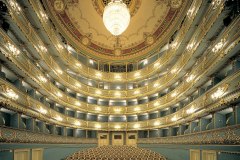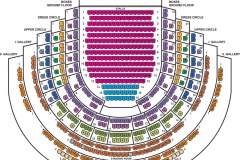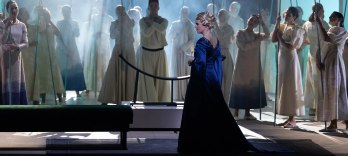Bílá Voda (White Water)
Mo | Tu | We | Th | Fr | Sa | Su |
Bílá Voda – a mountain village where crowds of believers used to flock to beg for help from a miraculous statue of the Virgin Mary. Today, Lena Lagner, a frustrated and unhappy woman, comes here to escape her past. She is taken in by several peculiar nuns, headed by nun Evarista. Lena studies the dusty records of the monastery and soon realises that the demons shadowing the history of the local nuns are far from gone and burden her own fate as well. The most difficult battle must be fought at home field... The latest novel by Kateřina Tučková, whose book The Last Goddess ranks among the most successful contemporary Czech books, narrates the history of women’s religious orders under the communist regime, which is an often-overlooked chapter of the Czech history, and the place of women in the Catholic Church.
Czechs are considered the most atheistic nation in the world; in fact, only about one-third of our country's population professes any religion. One percent of Czechs are even “conscious atheists who reject the existence of a God they know something about”. The truth is that we tend to believe in various ideologies to make for the lacking belief in God. Even today, many people would not hesitate to put a sharp end to the institution that was responsible for the Inquisition, the Crusades and the Wars of Religion. Nonetheless, are those who fight against Evarista fanatics who have been given the chance to release their inherent sadism, or are their acts driven by true belief in making the world a better, safer, freer and happier place?
Slovak playwright Daniel Majling says that every ideology simply speaks the language it has created – and he wants to conceive his theatrical adaptation in this sense.
Program and cast
Creatives
Stage director
Michal Vajdička
Dramatisation
Daniel Majling
Dramaturgy
Ilona Smejkalová
Sets
Pavol Andraško
Costumes
Katarína Hollá
Estates Theatre
The Estates Theatre today
The Estates Theatre is one of the most beautiful historical theatre buildings in Europe. It has been part of the National Theatre since 1920. The Opera, Drama and Ballet ensembles give repertory performances at the Estates Theatre.
History
The Estates Theatre is one of the most beautiful historic theatre buildings in Europe. Its construction was initiated by the enlightened aristocrat František Antonín Count Nostitz Rieneck, led by the desire to aggrandise his native city as well as the souls of its inhabitants. The construction lasted less than two years and the Theatre was opened in 1783. This project, extremely important for the Prague of the time, was in keeping with the zeitgeist of the late 18th century, a time when national theatres were being built at European courts, royal seats and cultural centres in the spirit of the Enlightenment idea that a generally accessible theatre is a moral institution demonstrating the cultural level of the nation.
The first, sporadic Czech-language performances took place in 1785. From 1812 onwards there were regular Sunday and holiday matinees. At that time, these performances became to a certain degree a political matter too. Thus arising in the difficult years following the failed revolution in 1848 was the idea of a Czech National Theatre.
By car to the National Theatre car park
To the centre (OldTown), approach on Masarykovo nábřeží (Masaryk embankment) in the direction from the Dancing House, at the crossroads in front of the National Theatre turn right to Divadelní street and then right again to Ostrovní street to the National Theatre car park. Parking costs 50 CZK/h.
From there, walk to the Estates Theatre along Národní street, then 28. října street, turn left on to Na Můstku street and right to Rytířská street.
Other nearby secure car parks:
Kotva department store (Revoluční 1/655, Prague 1), then walk along Králodvorská street to Ovocný trh.
Palladium department store (Na Poříčí 1079/3a, Prague 1), then walk along Králodvorská street to Ovocný trh, or to the Powder Gate through Celetná street to Ovocný trh.
By tram
By daytime trams Nos. 6, 9, 18 and 22 or night trams Nos. 53, 57, 58 and 59 to the stop “Národní třída”, then by foot along Národní street, then 28. října street, turn left to Na Můstku street and right to Rytířská street.
By daytime trams Nos. 5, 8, 14 and 26 or night trams Nos. 51, 54 and 56 to the stop “Náměstí Republiky”, then on foot around the Municipal House to the Powder Gate, on Celetná street to Ovocný trh.
By daytime trams Nos. 3, 9, 14, 24 or night trams Nos. 52, 54, 55, 56 and 58 to the stop “Jindřišská”, then on foot along Nekázanka / Panská streets, turn left to Na Příkopě street and then right to Havířská street (from Na Příkopě street you can also walk through the Myslbek arcade).
By metro
To the station “Můstek”, lines A and B (green and yellow), then on foot through Na Můstku street and right to Rytířská street.
Performances: Mo 30 Sep 2024,
Performances: Fr 03 May 2024,
Performances: Su 28 Apr 2024,
Performances: We 01 May 2024,
Performances: We 12 Jun 2024,

 EN
EN DE
DE IT
IT FR
FR ES
ES RU
RU JP
JP RO
RO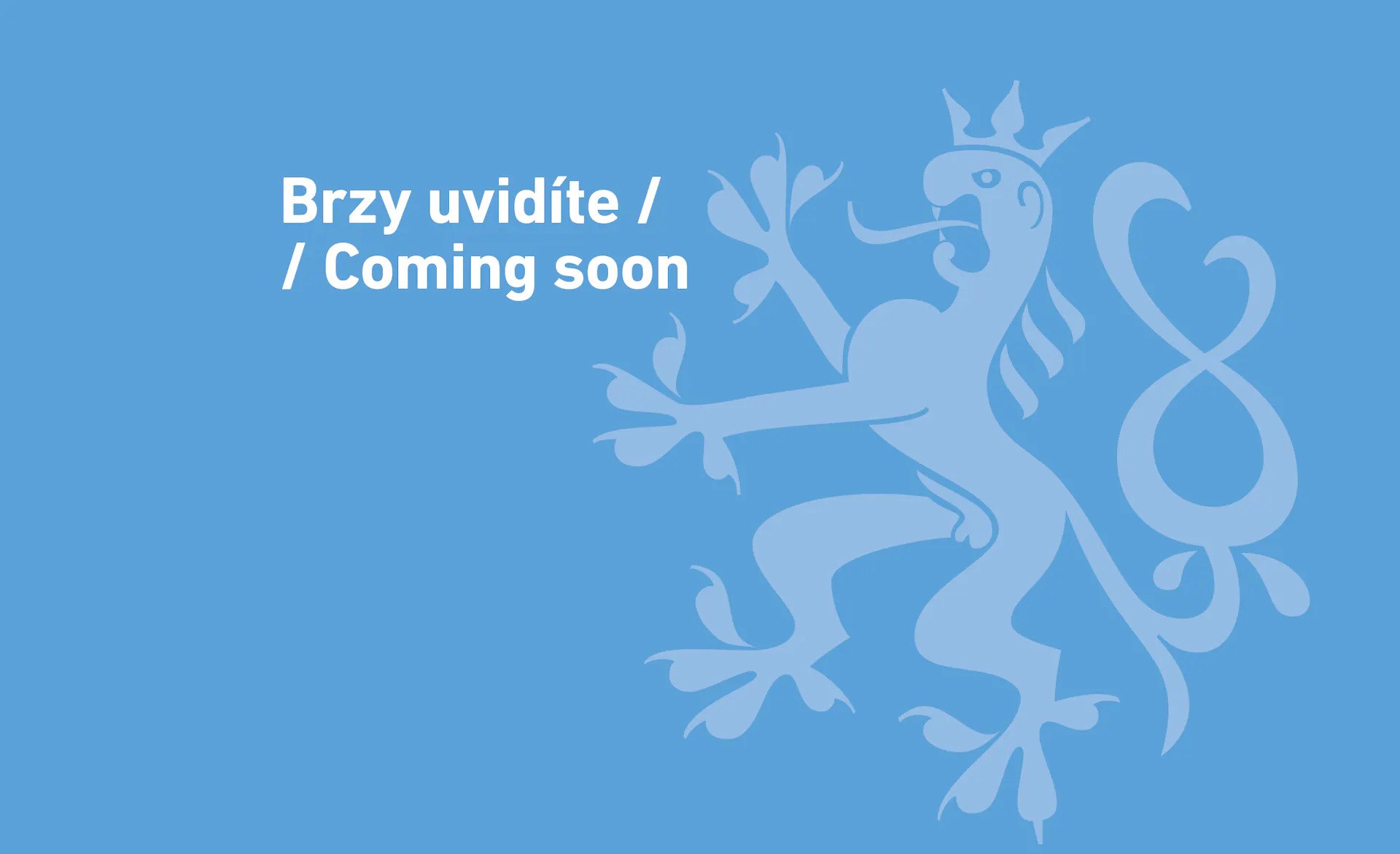
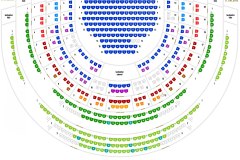 Seating plan
Seating plan 